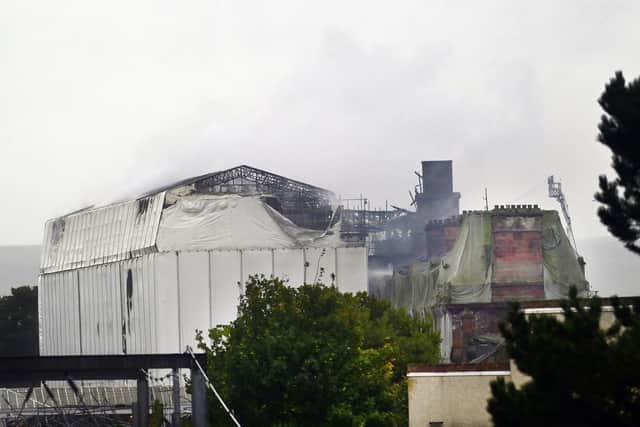Ayr Station Hotel fire highlights blight of absentee owners – Martyn McLaughlin
It has been nearly two decades since I lived in Ayr, but even at the turn of the century, the Station Hotel was still cherished as a vital landmark in the town’s heart. What a difference time, and a change of ownership, can make.
The latest fire to engulf the magnificent B-listed building is yet another chapter in its protracted demise. Ten years have passed since a dangerous building notice (DBN) was issued to Eng Huat Un, the Malaysian businessman who purchased the hotel in 2010, only to oversee its closure. A second notice followed in 2018, by which point the building had to be shrouded in full-height protective scaffolding and PVC sheeting so as to protect the wider public.
Advertisement
Hide AdAdvertisement
Hide AdA considerable and mounting bill has been footed ever since by the council, the Scottish Government, and Network Rail. Between March and the end of September, the cost of what is known as building encapsulation saw half a million pounds drained from the council’s uncommitted reserves, and a sum exceeding £660,000 has already been committed to cover similar works until next May.
I understand that the local authority’s lawyers have been diligent in their attempts to recoup the money spent so far. A first Court of Session decree for more than £615,000 is being registered in the Malaysian courts for enforcement purposes against the debtor, with a hearing fixed for October. A second Court of Session decree for more than £700,000 was granted in June, and an extract issued for enforcement last month.
Naturally, these are not the only costs incurred as a consequence of the hotel’s dire state. There are also the indirect costs to the regional economy. When the rail line at Ayr has been partially closed due to the need to carry out works to the building, it has led to a major fall in passenger numbers, impacting severely on rural communities like Girvan, Barrhill, and Maybole. The major disruption caused by Monday’s fire will add to that toll.
Mr Un’s intentions for the building have never been made clear, and a search of the byzantine web of incorporations he has made at Companies House sheds little light on the issue, with multiple companies set up then dissolved. So perverse is the situation that last year, South Ayrshire Council was reduced to asking a local newspaper to pass on contact details for a lawyer purporting to act for him.
The local authority has endured a fair bit of flak over the fate of the hotel, but in truth, its hands are tied, and it has only been able to fulfill its legal obligations to ensure no one comes to harm. The shambolic situation underlines the need for councils to have greater powers to take action against absentee owners, to say nothing of the need for greater scrutiny of those overseas parties who buy civic assets.


It is easy to argue that a compulsory purchase order should have been pursued, but a realistic case can only be made if there are funds to bankroll a viable plan. It may be too late for the Station Hotel, but if any good can come from its sorry state, perhaps other historic buildings will be spared a similar fate.
Comments
Want to join the conversation? Please or to comment on this article.